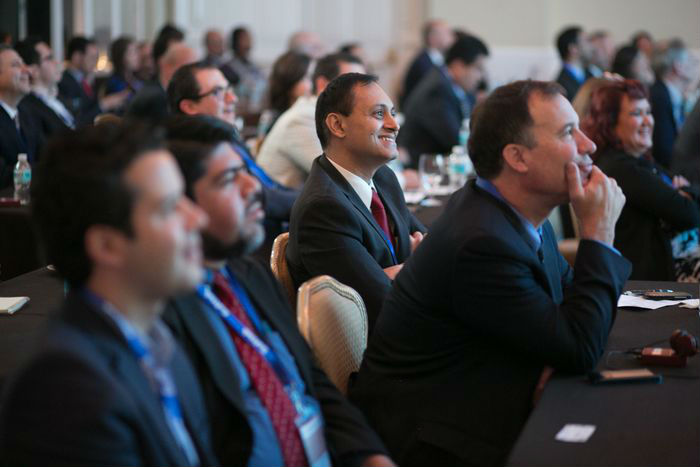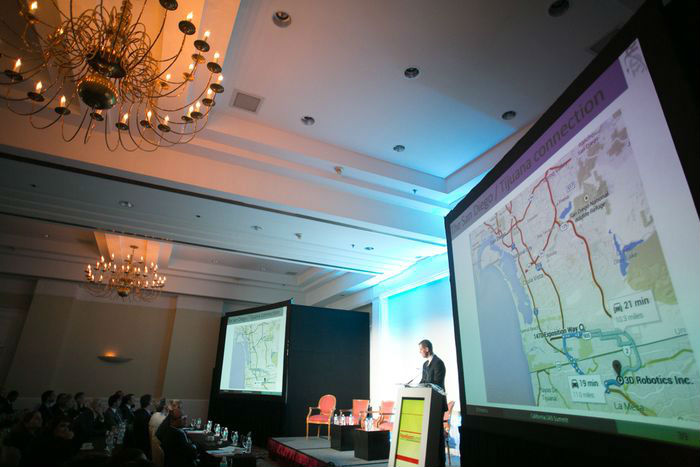Mexican service providers and their potential clients in the United States are both missing out on mutually beneficial business relationships because of a lack of communication and problems of perception. The pressing need to solve the lack of understanding on the U.S. corporate side was one of the clearest messages to emerge from day one of the inaugural FutureSource Summit at Mexico City’s Four Seasons Hotel on Thursday.
As Daniel Chavez, the CEO of Monterrey-based software developer Dextra Technologies put it, Mexico’s offering is “not about labor arbitrage” – although it has many key advantages that offset wage differences – and it should not necessarily been seen as a destination that replaces India in buyers’ minds. Instead, Mexico can complement offshore operations.
“Our business models are changing to a consumption-based model and our cycle times are changing. We need to be able to produce capabilities much faster than we could before. This isn’t about killing India so much as really becoming global companies,” said Mark Ferri, IT Senior Manager at U.S. multinational Cisco Systems, in an insight-crammed Super Panel on “Collaboration and the New Demands of Americas’ Outsourcing Leadership.”

The key to success is “right-shoring,” knowing where to outsource certain functions to the right places, explained Ferri. He urged Mexican sellers to talk up their agile development models and explain to U.S. companies how they can leverage both offshore and onshore locations in order to prosper.
Bridging the Continental Divide
“The conservative nature of U.S. businesses is extremely frustrating” when it comes to exploring the opportunities that Mexico offers, said Jon Butler, Principal Consultant at technology advisory firm ISG. In order to break through that, he urged Mexican providers to bring potential clients to their centers so that they can witness the reality of the situation south of the border.
Mexican sellers must also improve their communication skills in order to showcase their talents more effectively, Butler added. “Please talk in English,” was his frank advice for providers when they pitch to potential clients from the United States. “It’s not because I don’t respect your country or your culture, but because I see all of you as future leaders and when you’re up on the global stage English is an important language.”

“People in the U.S. understand the Mexican work ethic but they don’t recognize the ingenuity and problem-solving capabilities of the Mexican people,” Butler explained. Hence increasing Mexico’s English-speaking capabilities is paramount for the country in order to stop underselling itself and realize its potential, he said.
That potential is evident when you delve into the numbers and examine the talent that Mexico is producing.
Ten years ago, the nation had negative growth in the number of students graduating in IT-related fields each year, revealed Alfredo Pacheco, CEO of Mexico’s National Chamber of the Electronics, Telecommunications and Information Technologies Industry (CANIETI). “Right now there are more than 100,000 IT-related professionals graduating each year, that’s more than in the U.S. and Brazil, countries that are two or three times bigger than Mexico,” he added.
Moreover, the number of Mexican service providers has grown from just 25 to around 400 in the last 12 years, noted Daniel Chavez, the CEO of Monterrey-based software developer Dextra Technologies.

Collaboration Breeds Success
Prior to the super panel, a great example of the success that can be achieved through cross-border collaboration came from Tim McConnell, Vice President of Engineering at 3D Robotics, the world’s second biggest commercial drone manufacturer.
Headquartered in Berkeley, California, 3D Robotics has engineering facilities in San Diego and a manufacturing facility in Tijuana, Mexico. “I’ve found it so easy to interact with the folks in Tijuana, there’s really no cultural barriers and everyone there speaks English very well,” McConnell said. “If we need to discuss something then I can get in my car and I’m there an hour later. It’s a wonderful relationship, a wonderful close collaboration.”
3D Robotics produces drones for commercial use in many industries – anything that’s “dull, dirty or dangerous,” McConnell said – including agriculture, infrastructure maintenance, construction, conservation and extreme sports. “We get really great engineering talent down there, there’s some terrific universities in the Tijuana area, as well as in California, so we’ve got engineers on both sides,” he added.

In comparison with offshore destinations like India and China, McConnell emphasized that Mexico has many significant advantages. Aside from the obvious benefits of Mexico’s geographic proximity, shared time zone and strong cultural affinity with the United States, it also provides much greater protection of intellectual property, he noted: “the folks that I’ve dealt with in Mexico are so focused on maintaining IP security and that’s just not something I’ve seen on the other side of the Pacific.”
Once the presentations and panels were over, the 125 delegates in attendance took part in “Speed-Matching” sessions, a rapid form of networking in which buyers are paired up with service providers in five-minute slots before moving on to meet more potential partners.

“My main target is to network with key people that I have identified,” said Pablo Gallegos, Country Manager of Tech Mahindra, which only recently initiated operations in Mexico. In the next 24 months we hope to have around 500 people across Mexico, he added. Why now? The recent reforms to Mexico’s energy and telecommunications sectors make this the ideal time to invest in the country, Gallegos explained.
“Companies like Pemex (Mexico’s state-owned oil and gas company) will need a lot of IT services” in the wake of recent changes to open up the industry, he said. “There are huge opportunities to take advantage of here.”










Add comment